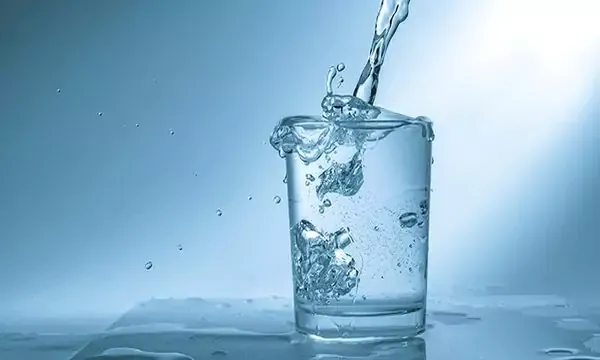Recommended water intake per day
What are the health benefits of water?
Water is essential for maintaining overall health and plays a vital role in numerous bodily functions. Some of the health benefits of water include:
Hydration: Staying properly hydrated is crucial for maintaining the balance of bodily fluids. Water helps regulate body temperature, lubricates joints, aids digestion, and facilitates nutrient absorption.
Supports organ function: Water is necessary for the proper functioning of organs such as the kidneys, which help eliminate waste products and maintain electrolyte balance. Adequate water intake also supports liver function and helps with detoxification.
Promotes cardiovascular health: Sufficient water intake helps maintain healthy blood viscosity and circulation. It can contribute to maintaining normal blood pressure levels and reduce the risk of cardiovascular diseases.
Aids digestion and prevents constipation: Water helps soften stool and facilitates smooth digestion. It promotes the movement of food through the digestive system and helps prevent constipation.
Enhances cognitive function: Proper hydration is essential for optimal brain function. Dehydration can impair cognitive performance, concentration, and overall mental clarity.
Supports weight management: Drinking water can help with weight management by promoting satiety and reducing calorie intake. Water has zero calories and can be a healthy substitute for high-calorie beverages.
Promotes healthy skin: Proper hydration helps keep the skin hydrated and supple. It can improve the complexion, reduce dryness, and support the natural elasticity of the skin.
Facilitates exercise performance: Staying hydrated is crucial for optimal athletic performance. Water helps regulate body temperature, lubricate joints, and transport nutrients to muscles.
These are just a few of the many health benefits of water. It's important to maintain a consistent intake of water throughout the day to support overall well-being.
The recommended water intake per day can vary depending on various factors such as age, sex, weight, activity level, and overall health. A commonly cited guideline is to consume eight 8-ounce glasses of water per day, which equals about 2 liters or half a gallon. This is often referred to as the "8x8 rule."
However, it's important to note that this guideline is a general recommendation and may not be suitable for everyone. Some individuals may require more or less water intake based on their individual needs. Factors such as physical activity, climate, health conditions, and pregnancy or breastfeeding can increase the need for additional hydration.
A more personalized approach to determining water intake is to listen to your body's thirst cues and drink when you feel thirsty. Additionally, the color of your urine can be an indicator of hydration status. Clear or light yellow urine usually suggests good hydration, while dark yellow urine may indicate the need for more fluids.
It's always a good idea to consult with a healthcare professional, such as a doctor or registered dietitian, who can provide personalized recommendations based on your specific circumstances.
The recommended water intake per day for women can vary depending on factors such as age, weight, activity level, and overall health. However, a general guideline is for women to aim for around 2.7 liters (91 ounces) of water per day, which includes both fluids from beverages and foods. It's important to note that this is a rough estimate and individual needs may vary. It's always a good idea to listen to your body's thirst cues and consult with a healthcare professional for personalized recommendations.
The recommended water intake daily for adult is commonly stated as eight 8-ounce cups, which is approximately 2 liters or half a gallon. This guideline, known as the "8x8 rule," is a general recommendation for maintaining hydration in adults. However, individual water needs can vary based on factors such as activity level, climate, and overall health. It's important to listen to your body's thirst cues and adjust your water intake accordingly. Consulting with a healthcare professional can provide personalized recommendations based on your specific circumstances.
Water is a vital component for human health, and it is essential to drink an adequate amount each day to maintain hydration. But how much water should you drink? While the precise amount varies depending on factors such as activity level and climate, a general guideline suggests consuming around eight glasses or approximately 2 liters of water per day. To determine your specific water intake, you can use a water intake calculator that takes into account your individual characteristics. Staying hydrated is crucial for various aspects of health, including proper organ function, digestion, cognitive performance, and healthy skin. Adequate fluid intake supports overall well-being and helps maintain optimal nutrition. Remember to listen to your body's signals, and if you're physically active or in hot weather, you may need to increase your water intake to meet your body's hydration needs. Stay healthy by prioritizing your daily water intake and incorporating other fluid sources for a well-rounded hydration strategy.







.jpg)

%20(1).webp)